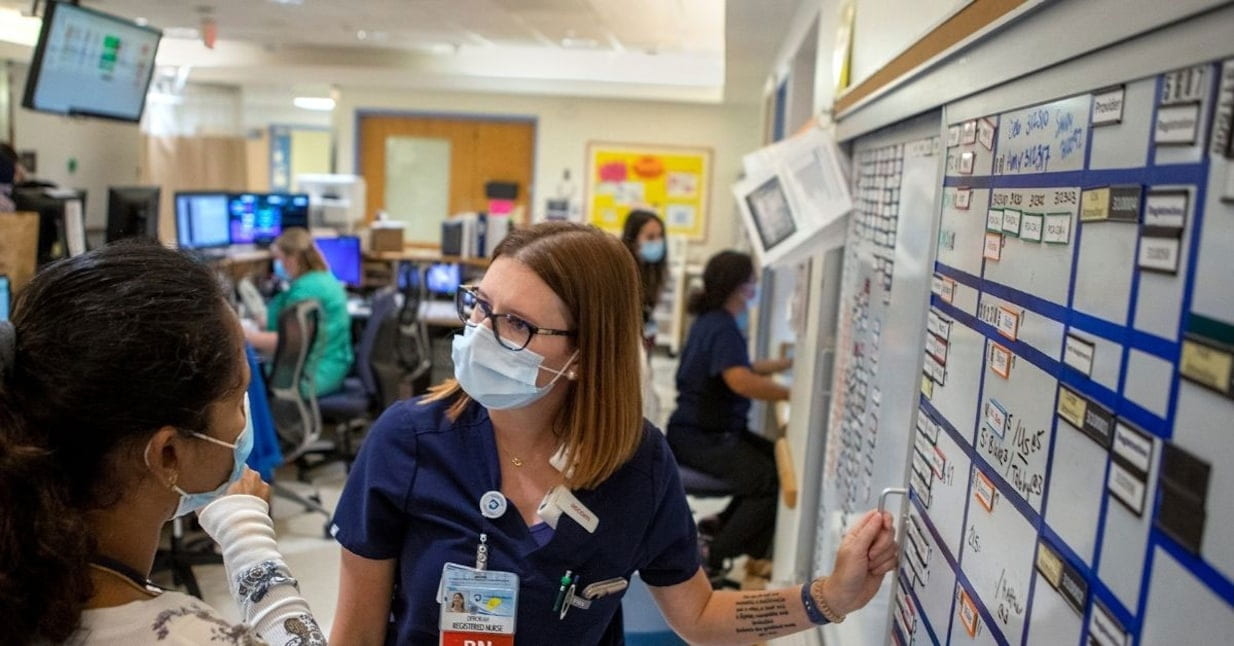
Building trust with victims of sexual assault takes care and time. Penn State Health Milton S. Hershey Medical Center’s Sexual Assault Nurse Examiners, known as SANEs, are specially trained in conducting exams that put the patient’s well-being and distinct choices front and center.
“It’s important for people to know that we offer this specialized service and provide compassionate care,” says Deb Medley, assistant nurse manager for the adult emergency department and SANE lead nurse. “Sexual assault is still an issue that carries a lot of stigma, and many victims are afraid to come forward. It’s wonderful for them to know they have this type of support close to home.”
The Milton S. Hershey Medical Center’s SANE unit, launched in December 2019, fills a need in the community for patient-centered excellence in care and evidence collection for adults and adolescents who are victims of sexual assault. SANEs undergo rigorous training from the International Association of Forensic Nurses, including a 41-hour course and specialized clinical practice.
The common perception of sexual assault victims and the examination process can be distorted by inaccurate depictions in the media. Medley and her fellow SANEs strive to overcome that image by focusing on the patient’s comprehensive needs ― mental, spiritual and physical.
Hershey Medical Center provides the SANE units all the resources they need to provide quality care. The unit partners with the Penn State College of Nursing SAFE-T Center, which delivers sexual assault care to underserved communities. The partnership assures that a seasoned nurse examiner – called a “teleSANE” – joins every exam via telehealth to provide consultation and support.
Hershey Medical Center also equips the unit with state-of-the-art technology, including a mobile digital camera to document exam findings. The camera is able to show details not visible to the naked eye. Since it’s about the size of a cell phone, patients feel comfortable with it and can even take their own photos if they choose.
“It helps give them back the power they lost during their attack,” Medley says.
All patients provide informed consent for their examinations. They are told what’s happening every step of the way and can change their minds at any time. They can also decline to report their assault to police but allow evidence to be collected and stored in case they change their minds in the future. Each exam can last four to six hours or more.
“Sexual assault is traumatic for patients, and we want to give them the time they need to process what happened,”says Medley. “We can help make sure they are in control of the exam because they had a moment during the assault when they weren’t in control.”
Renovations underway at the Hershey Medical Center emergency department include a dedicated sexual assault suite, with comfortable, separate rooms for consultations, exams, and private time with family members or friends, plus evidence-collection areas, secure lockers, and a shower that patients can use after exams are completed.
The SANE unit works with Penn State Health’s systemwide sexual violence task force as part of a comprehensive approach to addressing sexual assault. Community outreach includes a partnership with the YWCA of Greater Harrisburg that connects victims with counseling and financial resources.
Starting victims on the first step toward healing means helping them overcome fears and cultural barriers, especially if the assault was committed by a family member or intimate partner. Knowing that patients leave with resources to help them move forward reminds the SANEs that “It’s not just about the evidence collection,” says Medley.

